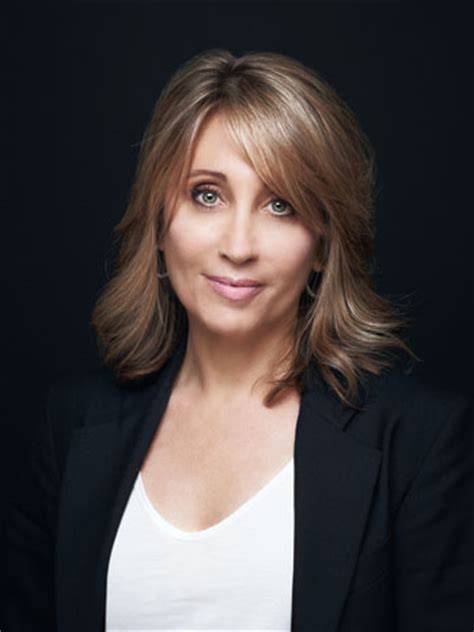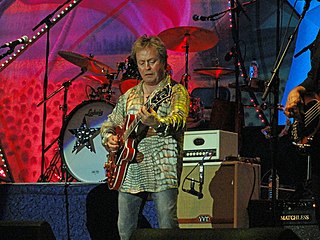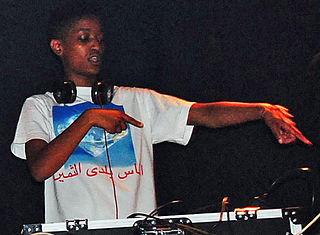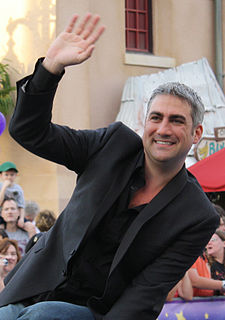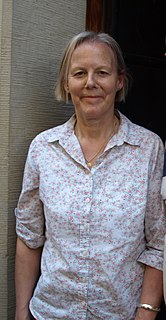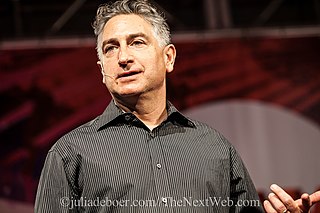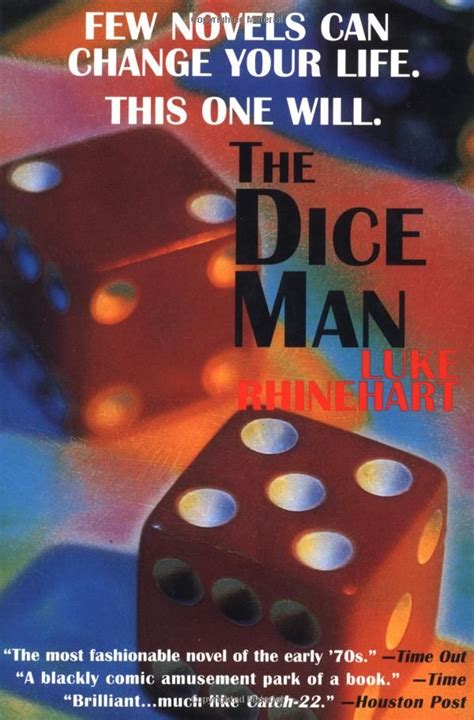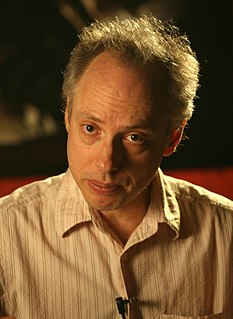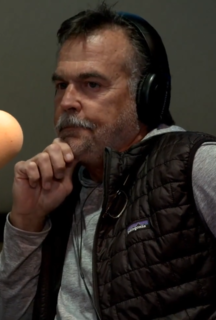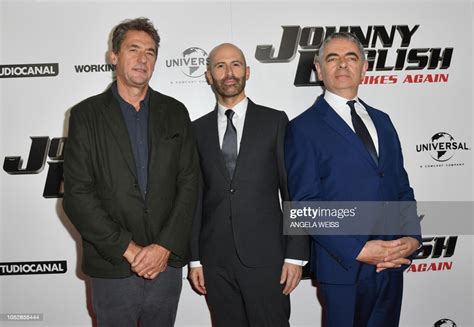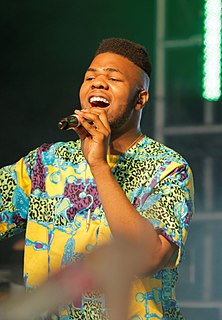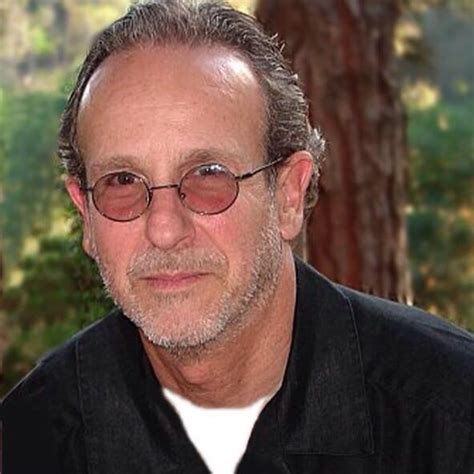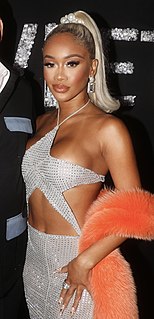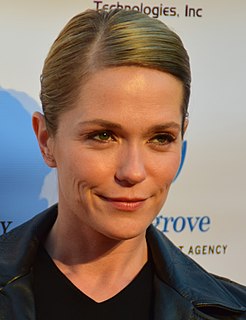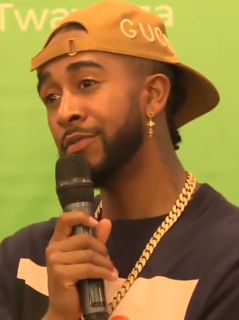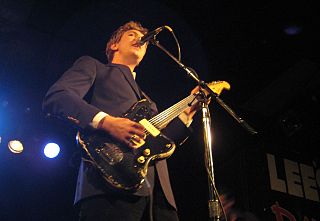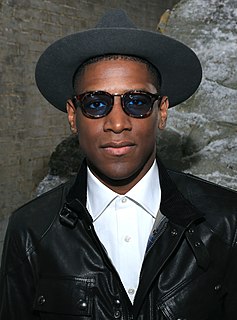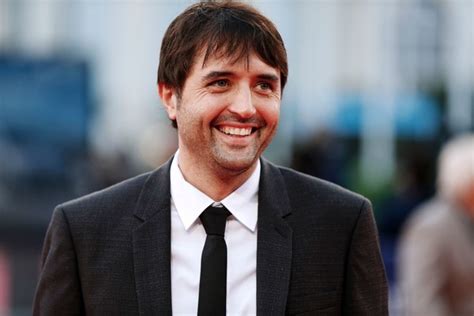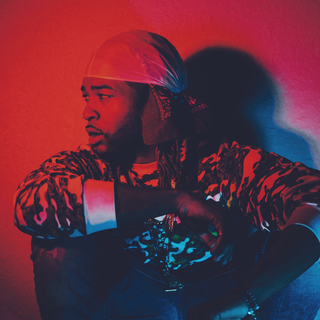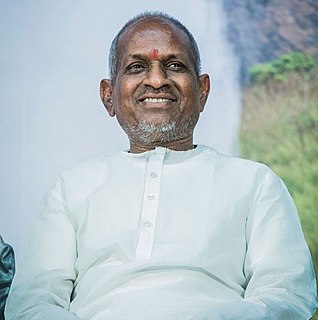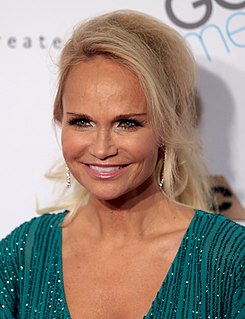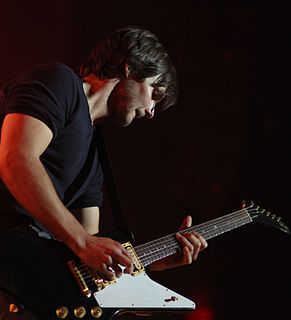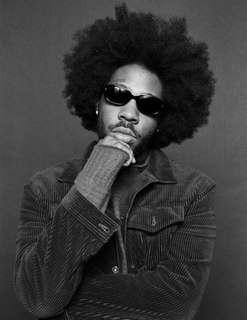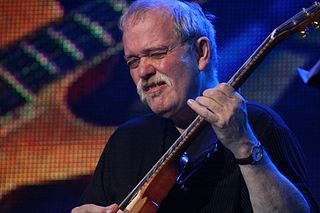Top 1200 Studio Quotes & Sayings - Page 3
Explore popular Studio quotes.
Last updated on November 16, 2024.
I think from age 13, 14, 15, I thought, yes, this rich studio produced music is the future, but it can't be the future to go run away into the recording studio. How can we take that kind of complexity and richness and make it possible for people to touch it and play it live. That's what hyperinstruments are.
The process is always the same. I get an inspiration for a new song, I put it down on paper immediately so I won't lose it. When I am ready to go to the studio with it, I play it a few times on the piano and edit, add, and type the lyrics and take it to the studio. Sometimes I don't have anything on paper.
I have always felt that my career was not going to be a straight shot up, but more of a kind of rolling wave, so that I could raise my children. So I got pregnant when I was the head of production at a studio, and I became chairperson at a bigger studio when I was pregnant with my second daughter. You just do it!
At the time, The Hotel New Hampshire was John Irving's favorite adaptation of his work, which meant a lot to all of us who worked on that movie.It's amazing to me that that was a studio movie. That was a summer studio release! If that doesn't tell you how much the business has changed, nothing will.
When any young director gets hired by a studio to do a $125 million film based on a preexisting piece of intellectual property, they're climbing into the meat grinder. And what you're coming out with on the other side is a generic, heavily studio-controlled pile of garbage that ends up on the side of Burger King wrappers.
I do think it's possible for me to go back to the studio, and for a lot of women filmmakers to be going back into studio filmmaking with a different sense of their own agency, and a different sense of the respect that they can command. When you asked the question about whether women want to be making big studio movies, the answer is almost always yes. It's just, how do they want to be treated? What is that experience going to be? And if you know the experience is gonna be shitty going into it, I personally am at a place where I'm not willing to punish myself any longer.
You get very little from the studios anymore, it's all independent. And I think the studio, with the exception of something like The Social Network, a fine film, very interesting, but as for studio pictures, that's it, what else? There was more only a few years ago. So it changes, and I'm trying as much as I can.
At a certain point you have to make a decision in your life about where will you best serve, and I decided that I would best serve as a producer as opposed to a studio executive. There are many upsides to being the studio executive, but one of the downsides is that you get removed from the actual process of making the movie.
I was probably 15 when I started going to the studio with the older cats in my neighborhood. They heard me rap outside one time; I was just freestyling. And they invited me to the studio. It's good when you're accepted, no matter what crowd. That's the first step of believing you can do whatever you feel like putting your mind to.
For me, between "Reference" and "Sketching & Conceptualizing" is the "Get the Hell Out of the Studio" step. I most often NEED to shut off the computer, push myself back from my desk and escape the studio space to let possible ideas percolate in my gray matter before committing anything to paper or digital imagery as a sketch or a concept.
When I decided to go to art school, it wasn't necessarily something I thought I needed. No one talked about graduate school when I was an undergrad. I went on to a residency at the Studio Museum in Harlem, and that transition from Yale to the Studio Museum, that was the real beginning of my professional career.
There's a trend in Hollywood at the moment where studio executives are coming from more of a marketing background, and that is challenging. I think one of the problems of marketing executives is that they don't understand how films get made and they're a bit nervous. And that is not the most efficient way to be a studio executive.
'Southern Accents,' I think that's one of my best, really. That would have been 1984, and I wrote that on the piano in the studio at home. I had a studio, and I just happened to be down there in the middle of the night. It was quite late, probably early morning, and I just started to play, and a song just started to appear.
The funny thing is that the studio that we recorded in was the same studio that Frank Sinatra and Bing Crosby and Nat King Cole used to warm up their voices in before they went across the street to CBS Radio. The owner has preserved it exactly the way it was in 1925. It was such a perfect coincidence that we were doing music inspired by that stuff in that room. It was incredible.
I've gotten to work with amazing people. I would say usually we get to a point before we get into the studio where there isn't that sense of anxiety or nervousness of who they are because I don't think it would be as productive in the studio if that was the case. But maybe meeting someone like Neil Young for the first time made me anxious.
When I was younger, I'd be in the studio three days straight to get something right, and my manager would be like, 'Go home!' Even now, I still sleep in the studio sometimes, but I can't do it quite as often. I've got gigs; I can't have my hobo beard! But if you love what you're doing, you can't stop. It's obsessive.
If I have a song that I feel is really one of my best songs, I like it to have a formal studio recording because I believe that something being officially released on a studio record gives it a certain authority that it doesn't quite have if it comes out on a live album or is just a part of your show, you know.
When I'm at home or in the studio, I have a 1963 Martin. It's a D-28, and I love that guitar. I write on that guitar, and it's the first guitar that I put a pickup in and ran through an amplifier, splitting the signal to the amplifier and a DI or in the studio mic'ing it traditionally and putting an amp in the other room.
I suppose where I am sort of reflects the work I have chosen to do. Are there occasional frustrations because I can't work with a certain director because it's a big studio movie, and I don't have enough of a studio profile? The answer is yes. But generall... generally, I have the career I have chosen myself.


